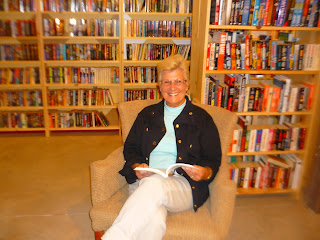While choosing library books for a retirement home, I was captivated by one of the books. It has a beautiful, inviting cover. And it is about a librarian. I opened the cover and this is what I read:
 |
| This is not the cover, just a great picture. |
I knew that I had to quickly read that book before delivering the 'stack'.
With a backdrop of Illinois during the depression, Alice Grace Ripley, an unemployed librarian takes boxes of books to a needy settlement in Kentucky. The library there delivers books to remote areas by horseback.
This book was completely fiction, and a fun read, but it reminded me of another fiction book that was based on fact.
"The Camel Bookmobile" by Masha Hamilton
Fiona Sweeney an idealistic, 36-year-old librarian from New York, decided to take books to the bush in Kenya to improve the literacy rate there. She was 'on a mission' and delivered the books by camel. Each native in these villages of huts was allowed two books and if any book in the area was not returned, the bookmobile would not come back. I was apalled when I read about the books they delivered- books by Hemingway, Mark Twain, and Dr. Seuss as well as Hollywood biographies and books on landscape and houses. For obvious reasons, some of the natives of Kenya objected to this invasion of Western culture. But many Americans thought it was an important 'mission'.
The author of this book, a journalist, had heard about the 'mission' and decided to make the story into fiction with a short trip to Kenya, which did not help to make the book sound authentic.
Any other librarians??? Oh, yes, in one of my favourite books: "Where the Heart Is" by Billie Letts. The librarian is actually a drunk who lives above the library. Her brother, Forney Hull, one of the fascinating characters that makes the book special, covers for his sister in operating the library. He had a copper-coloured beard and a brown stocking cap pulled over his head as he skulked among the shelves. And he turned out to be the hero of the book.
Any other librarians???? Oh, yes, me!












































